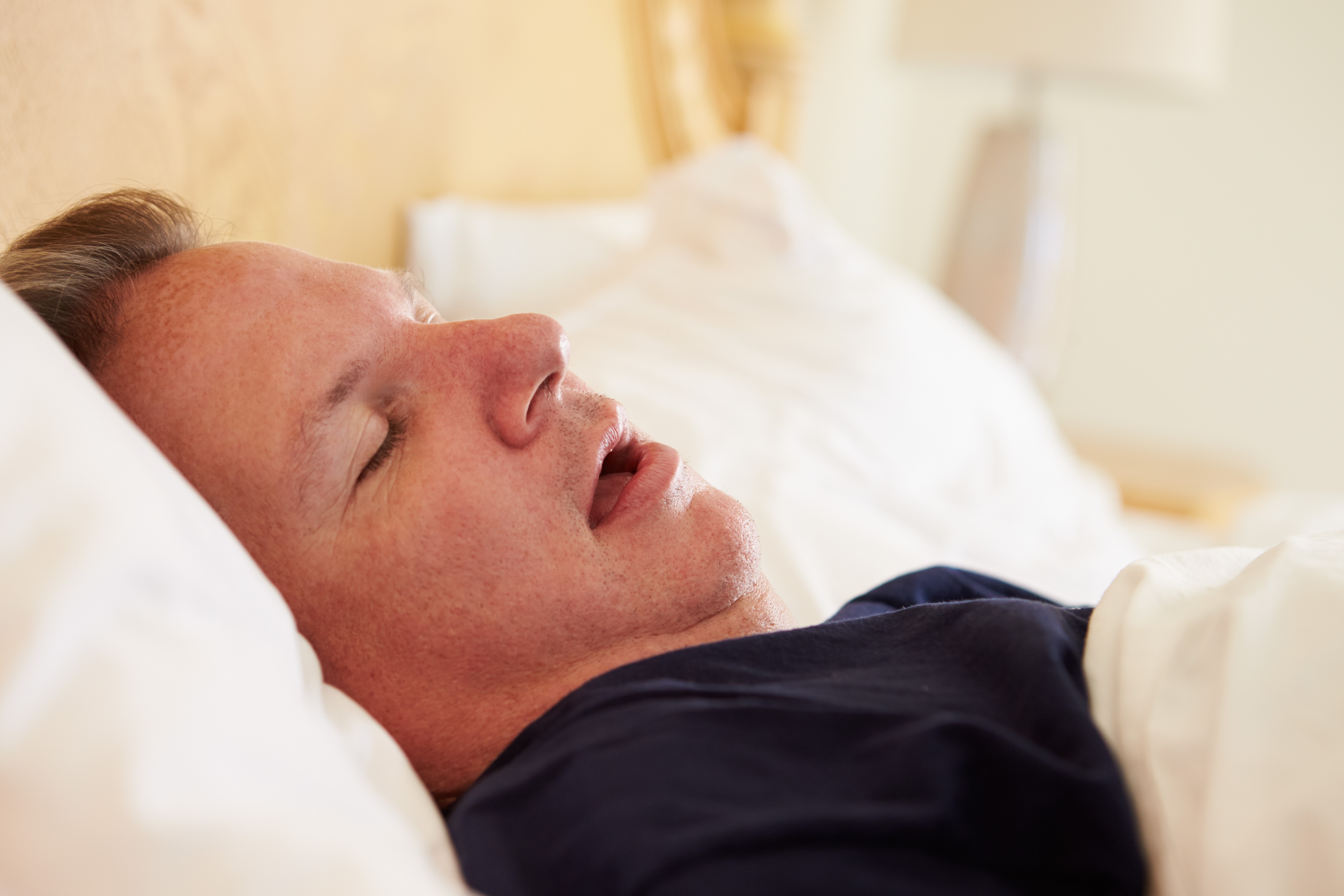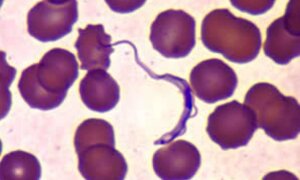Tirzepatide, a popular antidiabetic drug approved for chronic weight management, may also aid in treating obstructive sleep apnea (OSA) in obese patients, according to new research funded by the drug’s manufacturer, Eli Lilly and Company.
Obstructive sleep apnea is a common breathing disorder affecting the upper airways. It causes people to experience breathing interruptions during sleep, resulting in impaired sleep quality, mental health problems, and an increased risk of cardiovascular disease.
Tirzepatide, branded as Mounjaro and Zepbound, reduced sleeping patients’ breathing interruptions by almost 59 percent, according to the research paper published Friday in the New England Journal of Medicine (NEJM).
The drug also improved cardiovascular disease and obesity, conditions that contribute to sleep apnea. Around 70 percent of people with OSA are obese.
“This study marks a significant milestone in the treatment of OSA, offering a promising new therapeutic option that addresses both respiratory and metabolic complications,” Dr. Atul Malhotra, lead author of the study, director of sleep medicine at University of California–San Diego Health, and consultant for Eli Lilly and Company, said in a news release.
25 to 29 Fewer Breathing Interruptions per Hour
The study was based on two double-blind, randomized controlled trials of 469 clinically obese participants with moderate-to-severe obstructive sleep apnea from nine countries, including the United States, Germany, and Australia.
According to the study, people with moderate sleep apnea experience 15 to 30 breathing interruptions every hour, while those with 30 or more are considered to have a severe condition.
The participants in both trials received either the maximum tolerated dose of tirzepatide (10 or 15 milligrams) or a placebo over 52 weeks. They adhered to a 500-calorie deficit daily and got in at least 150 minutes of physical activity each week.
In the first trial, the tirzepatide group saw a mean reduction of about 25 events per hour compared to five events per hour in the placebo group.
In the second trial, people who took tirzepatide had an average of about 29 fewer events, or a 58.7 percent reduction in breathing interruptions, versus an average 3 percent reduction in the placebo group.
Study participants reported better sleep quality and fewer disturbances. In addition, participants in the first trial saw an 18 percent reduction in body weight, while those in the second trial saw an average 20 percent reduction.
“The main way tirzepatide reduces sleep apnea severity is by removing fat from around the upper airway and abdomen, making the airway less collapsible during sleep,” co-author and sleep-medicine physician Dr. Ronald Grunstein told The Epoch Times.
OSA causes the upper airway to become blocked during sleeping, reducing or completely stopping airflow. Obesity, enlarged tonsils, or hormonal changes can all narrow the airway.
The researchers also observed reduced oxygen-starvation burden, lower inflammatory proteins, and improved systolic blood pressure.
Dr. Malhotra said tirzepatide should be combined with continuous positive airway pressure (CPAP) therapy for optimal improvements. CPAP machines use mild air pressure to keep the airways open during sleep.
People in the second trial, which showed a higher reduction in breathing interruptions, also underwent CPAP therapy, while those in the first trial did not.
“We believe that the combination of CPAP therapy with weight loss will be optimal for improving cardiometabolic risk and symptoms. Tirzepatide can also target specific underlying mechanisms of sleep apnea, potentially leading to more personalized and effective treatment,” Dr. Malhotra said in the press release. He said the next step includes conducting clinical trials to assess the long-term effects of tirzepatide.
Dr. Sanjay R. Patel, an expert in pulmonary disease and sleep medicine, said in his NEJM editorial that the initial results from the clinical trial show the usefulness of tirzepatide as an adjunctive treatment to address coexisting obesity in patients with OSA.
However, he noted that real-world evidence suggests nearly 50 percent of patients who begin treatment with a medication like tirzepatide for obesity discontinue the therapy within 12 months.
Drug Safety
In the second trial, more than 80 percent of participants in the tirzepatide group reported one or more adverse events. In comparison, around 75 percent of participants in the placebo group reported one or more adverse events.
The most common adverse events in the tirzepatide group were diarrhea, nausea, and vomiting.
Arrhythmia and major depressive disorder were reported at similar rates in both placebo and tirzepatide groups, though only the tirzepatide groups reported severe or serious gastrointestinal events.
Tirzepatide in Mounjaro and Zepbound
In May 2022, the
U.S. Food and Drug Administration (FDA) approved tirzepatide under the brand name Mounjaro for treating Type 2 diabetes. Like semaglutide, tirzepatide is a once-weekly injection that mimics two hormones that enhance insulin secretion and suppress appetite.
However, tirzepatide also acts on fat cells, affecting fat distribution, though its mechanism is not well-known.
In November 2023, the FDA also approved tirzepatide under the brand name Zepbound to treat obesity in adults because of its ability to promote weight loss.
The recommended starting dosage for Mounjaro and Zepbound is 2.5 milligrams once weekly for four weeks. Users are then supposed to increase the dosage to 5 milligrams per week.














